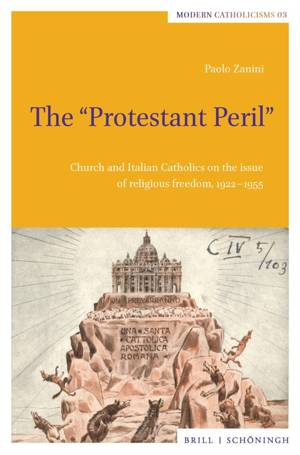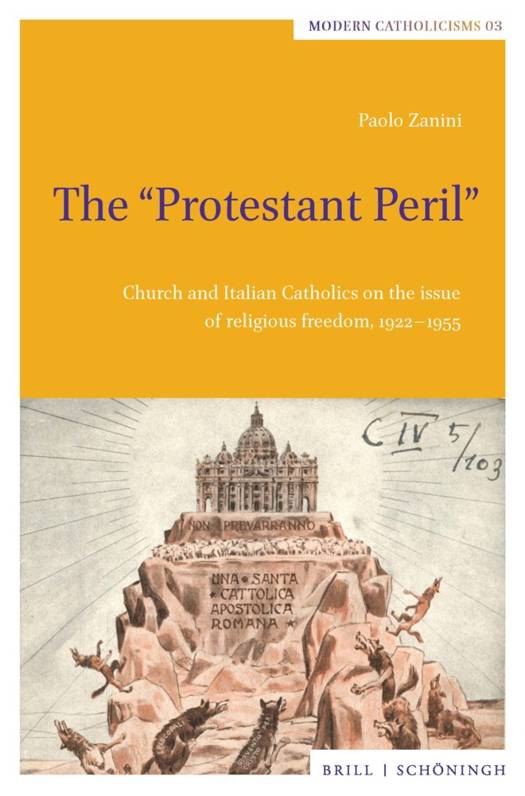
Door een staking bij bpost kan je online bestelling op dit moment iets langer onderweg zijn dan voorzien. Dringend iets nodig? Onze winkels ontvangen jou met open armen!
- Afhalen na 1 uur in een winkel met voorraad
- Gratis thuislevering in België vanaf € 30
- Ruim aanbod met 7 miljoen producten
Door een staking bij bpost kan je online bestelling op dit moment iets langer onderweg zijn dan voorzien. Dringend iets nodig? Onze winkels ontvangen jou met open armen!
- Afhalen na 1 uur in een winkel met voorraad
- Gratis thuislevering in België vanaf € 30
- Ruim aanbod met 7 miljoen producten
Zoeken
The "Protestant Peril"
Church and Italian Catholics on the issue of religious freedom, 1922-1955
Paolo Zanini
€ 112,45
+ 224 punten
Omschrijving
In Italy, anti-Protestantism became a relevant motif of reactionary polemics during the Risorgimento and the post-unification period in the 19th century. Attenuated around 1900, the anti-Protestant offensive resumed after the First World War. Between the early 1920s and the mid-1950s, the hostility of the Catholic Church towards the Protestant presence and mission in Italy became a significant social and political phenomenon. It succeeded in influencing the attitude of the Italian state and the legislation on religious freedom itself. Reconstructing Catholic anti-Protestantism, Paolo Zanini shows that the attitude towards Protestant denominations was one of the features of continuity between Fascism and the first decade of the post-war Republic.
Specificaties
Betrokkenen
- Auteur(s):
- Uitgeverij:
Inhoud
- Aantal bladzijden:
- 350
- Taal:
- Engels
- Reeks:
- Reeksnummer:
- nr. 3
Eigenschappen
- Productcode (EAN):
- 9783506796837
- Verschijningsdatum:
- 1/03/2025
- Uitvoering:
- Hardcover
- Afmetingen:
- 155 mm x 235 mm
- Gewicht:
- 1 g

Alleen bij Standaard Boekhandel
+ 224 punten op je klantenkaart van Standaard Boekhandel
Beoordelingen
We publiceren alleen reviews die voldoen aan de voorwaarden voor reviews. Bekijk onze voorwaarden voor reviews.











